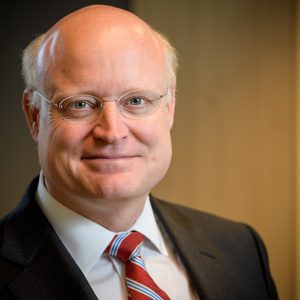Last year the Enlarged Board of Appeal challenged its own chairman, the Dutchman Wim van der Eijk, on suspicion of partiality.
The problem was that the chairman, by virtue of his position, is also the vice-president of the European Patent Office (EPO) and was a member of its management committee. As vice-president, he had to be loyal to the president of the body whose decisions are subject to the opinion of the Boards of Appeal.
Nevertheless, the Chairman appointed himself again as member of a Board that had to take a decision. One of the parties attempted to challenge him again, on which the Enlarged Board of Appeal (without the chairman) decided that a challenge was not now needed. The situation had changed since the previous year, because the chairman had declared that he no longer actively participated in the management committee of the EPO (this had not been officially announced, but the website of the management committee no longer listed him as a member).
The Enlarged Board of Appeal noted that as the management tasks of the chairman have become less prominent, fair-minded individuals will be less likely to assume an appearance of partiality. Since the chairman was no longer on the management committee of the EPO, the only basis for a suspicion of partiality that remained was the fact that the chairman was vice-president of the EPO. This cannot be changed without an amendment to the European Patent Convention. It was however possible to live according to the principle of ‘practical concordance’ no preference may be given to just one provision of the Convention (the position of vice-president) at the expense of another (the independence of the members of the Boards of Appeal).
Theoretical objections to the conflict of interest between the EPO and the Boards of Appeal have been going on for much longer, though. Last year these objections became more explicit with the challenge against the chairman. A low point was also reached when the president of the EPO denied a member of the Boards of Appeal entry to the buildings, due to what he felt was inappropriate criticism of the way in which the president deals with labour conflicts. (This was done without suspending the member, because the president has no disciplinary authority over the members of the Boards of Appeal: this authority rests with the administrative council, a kind of board of supervisory directors, to which the member states themselves appoint members.) All this only reinforces the long-held desire to separate the Boards of Appeal from the organisation of the EPO. This will have to wait, however, for the amendments to the European Patent Convention.

